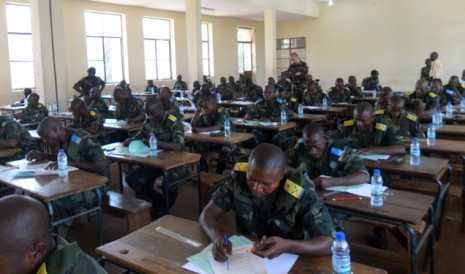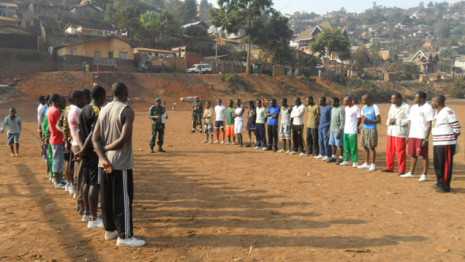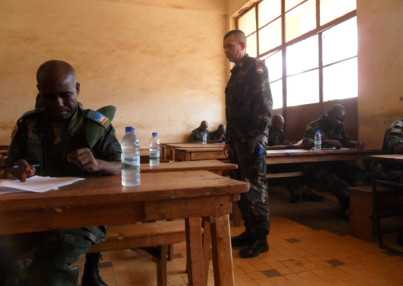The Soldiers of the Future
Szöveg: Col. Attila Král | 2013. augusztus 1. 9:36The Armed Forces of the Democratic Republic of Congo (FARDC) organized a countrywide recruitment and selection at 15 different cities in July 2013. Members of the civilian population were recruited for officer training whereas the active-duty soldiers were selected for participation in staff officer, officer professional development and NCO training courses. Besides providing financial support, the European Union Security Sector Reform Mission (EUSEC) also contributed its members serving at the offices in the country, who actively participated in organizing and managing the recruitment drive, the exams and the evaluation process.

This annually announced recruitment and selection provides opportunity for officer training (AcaMil – for 255 personnel), staff officer training (ECEM – for 60 personnel), the professional development training (EADM – for 40 senior officers, 40 warrant officers, 40 NCOs), the NCO training (ESS – for 200 personnel) and the skill retention and refresher training course (EFSO – for 1500 personnel). The admission procedure was conducted at all sites simultaneously. 164 personnel applied from the South Kivu Military District to take part in the entrance exam which took place in Bukavu.
The applicants’ mental and physical skills were both tested in the complex system of the process. The academic examination was conducted inside the classrooms of the largest secondary school in the region, while the PT test on a cinder-track of a valley in the middle of a housing estate, the medical examinations at the hospital of the military district and the academic tests inside a garage. The different levels of the academic tests were geared to the orientation of the applicants, but all of them included questions concerning general military knowledge and language proficiency tests in French. As only a few applicants scored 50 per cent + 1 at the exams – the result specified in the preliminary directives –, the minimum entry levels had to be brought down to 30-40 per cent, and in one case even to 20 per cent. In order to establish the difficulty level of the test papers, the members of the EUSEC Bukavu office were asked to fill them out too, and they achieved the best results according to the original setup, which would have qualified them to join any of the training courses.

Afterwards, those officer cadets and applicants for the professional development course who fulfilled the minimum requirements were subjected to physical tests, which involved only 27 of all applicants. The results were not spectacular. Even the military police were requested to help with securing the scene of the test – which was conducted under adverse circumstances – because the local youth was unwilling to leave the area. In what followed, the officer cadets were to take an IQ test and additional monotony tolerance tests, which they mostly passed with average or below average results.
All in all, we can conclude that the two members of the EUSEC office were a great help and were able to effectively cooperate with the FARDC in managing the admission procedure. The applicants who have passed the tests successfully – including more than 20 personnel from the South Kivu district – will be able to start their training in September 2013 at the military schools of the country at Kinshasa, Kitona and Kamina.
